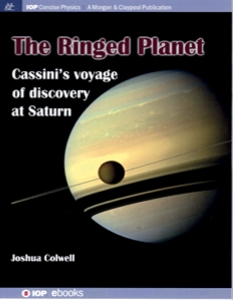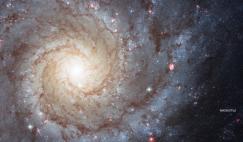In a competition for ‘most iconic planet’, some might choose Mars because it has inspired so much high-profile science fiction, while others might choose Jupiter for its iconic Great Red Spot. But if we consider ‘iconic’ in terms of graphic symbolism, it has to be Saturn: ask a child to sketch a planet and, likely as not, it will have rings. This must be at least part of the reason we are drawn to the planet Saturn and why so many books have been published on the subject.
This book is a relatively slim offering by way of page-count but it punches above its weight in terms of authorship (a planetary scientist who has “worked on the Cassini mission continuously for more than a quarter century”) and presentation (colour photos and diagrams throughout). Perhaps the major downfall of the book is its brevity; even the author admits that “several more books could be filled with stories of discoveries that space did not permit…”. But that’s because it is part of the Institute of Physics’ Concise Physics series, designed to provide “a snapshot of current research”. Sadly, this snapshot technique does not appear to allow for an index, which is surely a prerequisite for books “aimed at researchers and students”.
The text itself is divided into eight chapters covering, as one would expect, the rings, the moons and the planet itself. Chapter 3, for example, is entitled “Why are there moons and rings?”: it’s all about gravitational attraction, accretion and tidal distortion! Each chapter has references and a short ‘further reading’ section. A strange quirk of the book is the lack of sequential page numbering: for example, chapter 3 ends with page 3-10 and chapter 4 begins with page 4-1.
Although Saturn has historically been seen as a rather bland disk, especially when compared with Jupiter, this book highlights features of the upper atmosphere that have been discovered in recent times (such as subtle atmospheric banding, the hexagonal polar vortex and the polar aurora). Overall, the book provides a good introduction to our current scientific understanding of the ringed planet.











